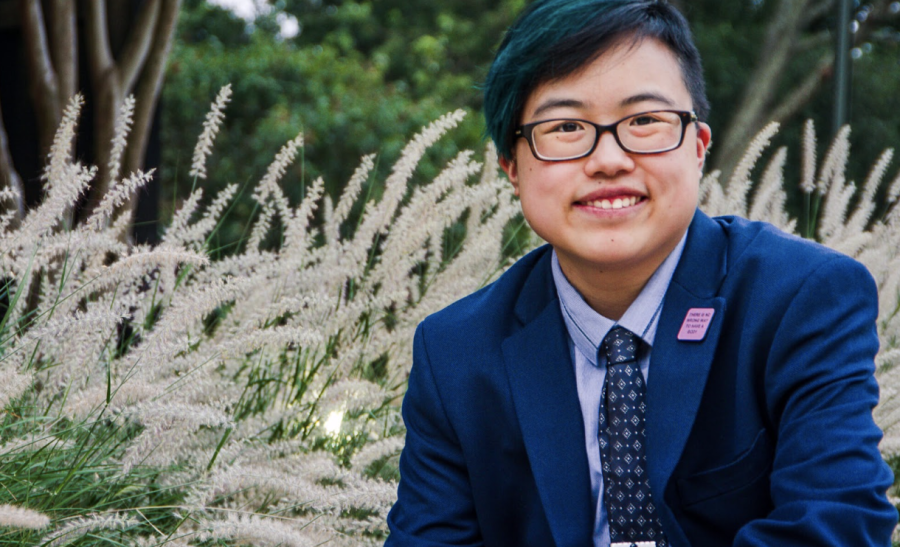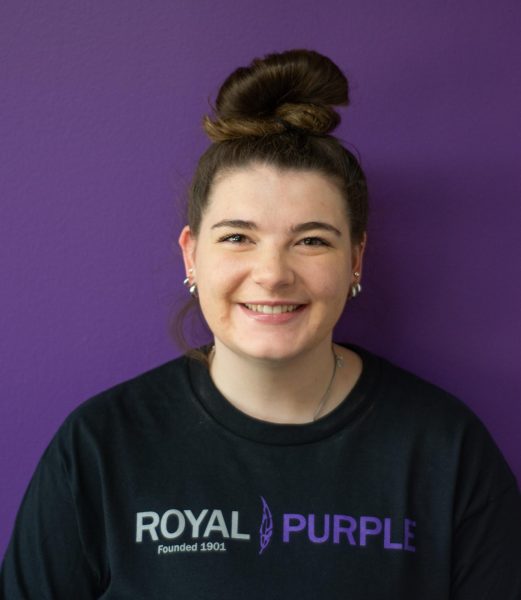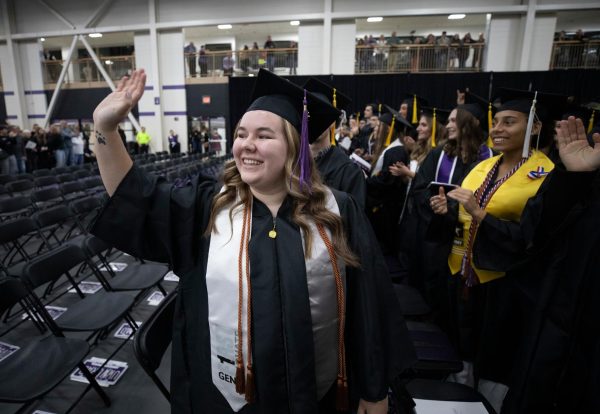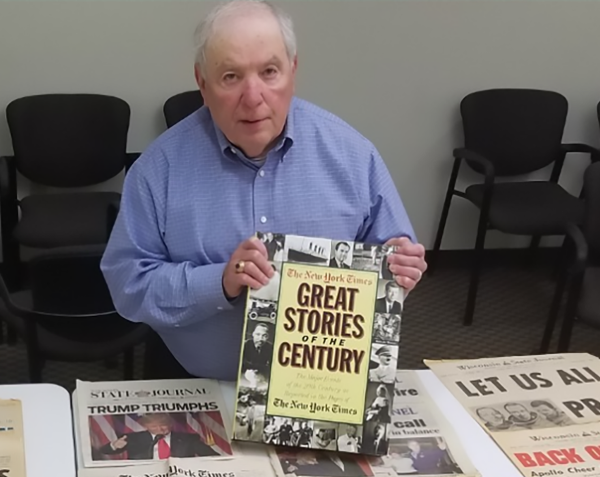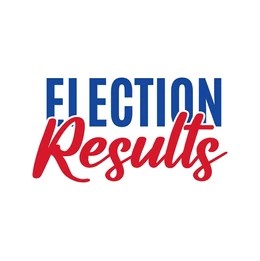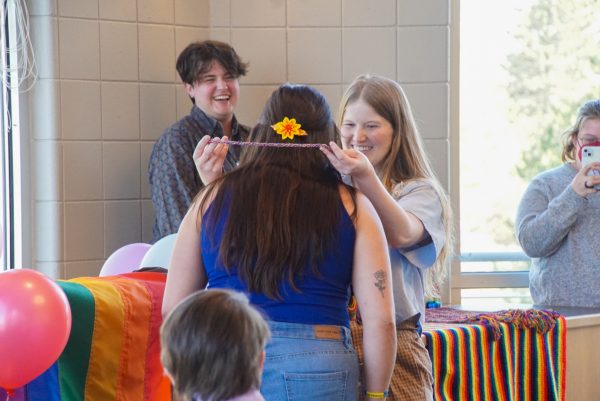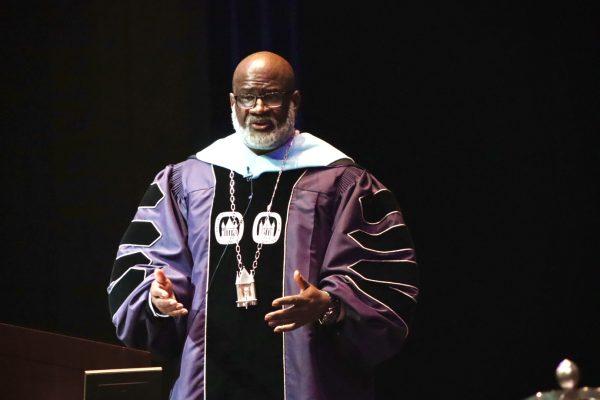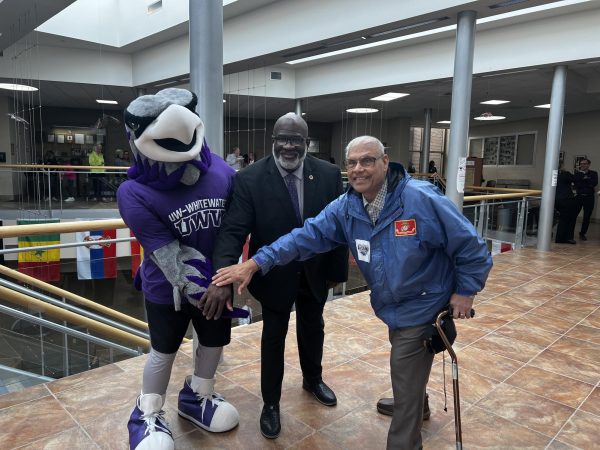The impact of ableism
Spring Diversity Forum
(photo taken from Lydia’s website, https://lydiaxzbrown.com)
Lydia X.Z. Brown, an activist, writer, adjunct lecturer for Disability Studies Program and Women’s and Gender Studies for Georgetown University.(photo taken from Lydia’s website, https://lydiaxzbrown.com)
March 5, 2023
On Feb. 26, 1987, President Ronald Reagn declared the month of March as National Disability Awareness Month. Thirty-five years later on Feb. 28, 2023, UW-Whitewater hosted the spring diversity forum in the University Center to discuss the importance of diversity on our campus as well as hear from Lydia X.Z. Brown, adjunct lecturer for Disability Studies Program and Women’s and Gender Studies for Georgetown University.
“It is essential that universities come together and hold these types of forums to ensure that all students and employees feel included and valued so that nobody feels that they need to live in the margins of the university or outside them,” said provost John Chenoweth. “It is also important that these forums bring together a range of voices, and we can take time to connect and engage with each other.”
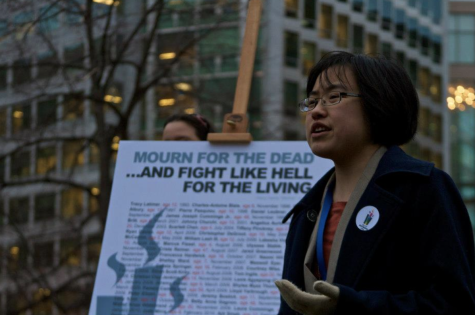
Discussing ableism goes beyond the definition, as ableism is different for all people. Instead, Brown suggests that ableism should be viewed as the impact on a certain individual.
“For many people, the word ableism is defined really readily as being biased or prejudice, discrimination, stereotyping, and other kinds of negative ideas related to disability,” said Brown. “We need to have conversations in which we understand ableism much more expansively, and therefore much more dangerously than merely this disembodied, isolated idea of ableism existing in a vacuum.”
Brown further noted personal experiences that they have faced with ableism, as well as ongoing struggles our country has faced for decades. While these forms of oppression continue to impact the lives of millions worldwide, we can work together to create change at small levels. In order for justice, groups of people, including our university, can keep moving forward and speaking up to create change in our communities.
“Ableism as a form of oppression is both necessary for and dependent upon every form of oppression that has ever existed,” Brown said. “All forms of oppression operate in part by depending upon each of us, rejecting the idea that they are systems. They erase the evidence of the systems at work, render invisible the mechanics of structural oppression so that by rendering them invisible, we might individualize the experience of oppression.”
Creating these conversations can unite people into standing up against oppression and topics of ableism. Ableism impacts everyone in some shape or form, and Brown invites us all to care for a cause that will benefit the world around us.
“We should feel like our university culture is better than the last time we met,” concluded Chenoweth. “Our university leadership is committed to making sure that that happens: a culture of openness, inclusion, transparency, and accountability. It should be one of the highest priorities of our university and value the speak-up culture where people can speak up, that they know they’re voices will be listened to, and that their ideas will have every opportunity to spark lecture.”
The final lecture in the diversity forum series will occur on Tuesday, Mar. 7, in the UC Old Ballroom. For more information, visit https://www.uww.edu/division-of-equity-diversity-inclusion-and-support-programs/diversity-forum.

